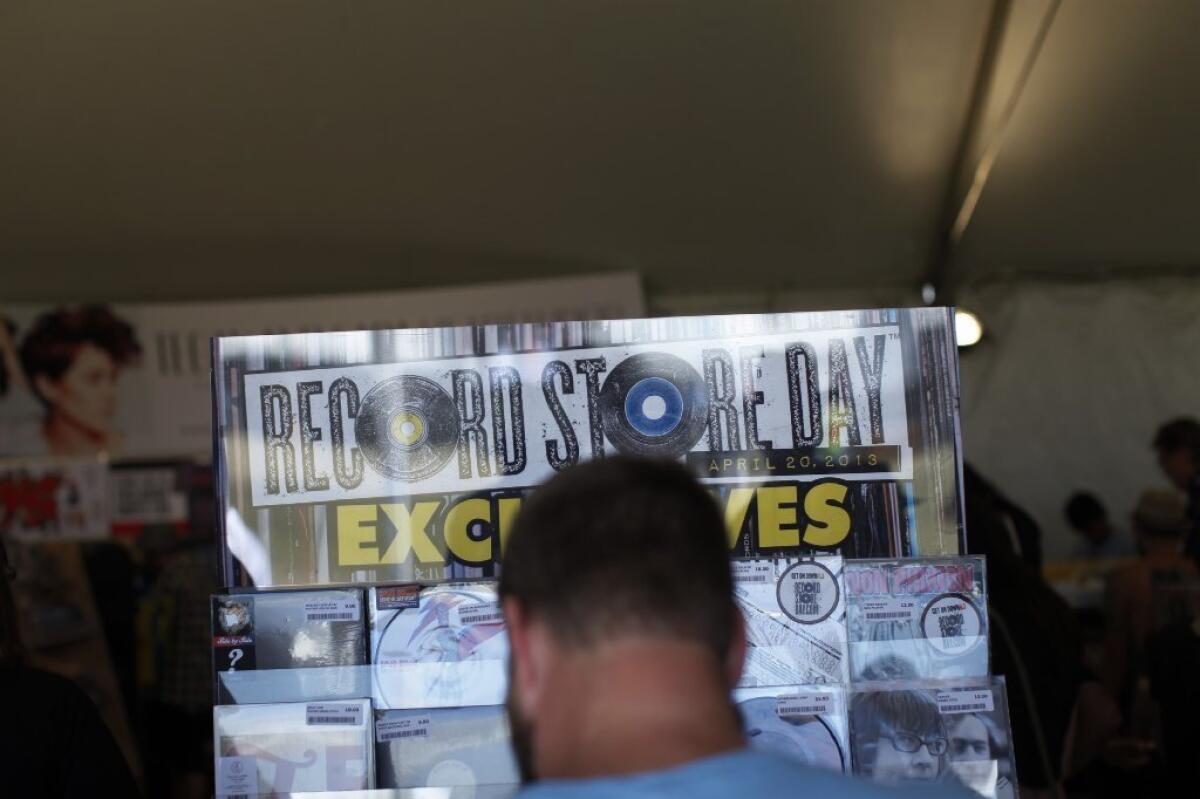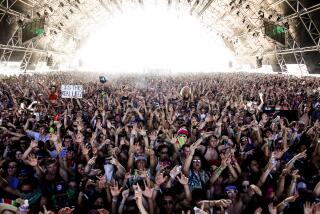SXSW 2014: The decline and resurgence of indie music retail

On Friday afternoon, while South by Southwest festival attendees were sleeping off hangovers or busy making new ones, in a conference room at the Austin Convention Center, record people were discussing the return of indie record stores, the success of the annual Record Store Day and their vision for the future of brick and mortar music shopping.
The panel was dubbed “Record Stores Are Dead. Long Live Record Stores.”
It’s not the most earth-shattering story coming out of Austin, Texas, but it is a curious one, considering that in 2014, technology start-ups and snack chip sponsorships rule the conversation. Long after the media and major labels pronounced mom & pop retail dead, though, the business has not only survived, it is slowly carving a new path.
To wit: Despite their rumored demise, new stores are sprouting up throughout the country and survivors are having banner years. In 2013, School Kids Records in Raleigh, N.C., for example, had its best day ever in 40 years of business, owner Stephen Judge said during the panel.
That day, of course, was Record Store Day, the annual spring celebration of independent music retailers that served to reinvigorate the market. Carrie Colliton, the “crew chief” of Record Store Day, said that the media pile-on in 2003 and 2004 left a lot of stores wounded. “It was a sexy topic. Everybody wanted to jump on the ‘record stores are dead’ bandwagon,” she said.
Those stories served to further a decline prompted by the death of national retailers such as Tower Records and Borders, the rise of Napster and the gradual decline of the compact disc. All of a sudden, a huge chunk of youth culture had little exposure to, or desire to possess, physical product. “We lost a whole generation” of record buyers, Judge said.
There was a tiny problem with the storyline. It wasn’t totally true. After the dust had settled and mass retailers had closed, the survivors bounced back. “Stores were doing well. We decided to have a party,” said Colliton. Hence Record Store Day, which takes place on April 19.
There are now 1,200 retailers participating in Record Store Day, and the volume of limited edition product from high-profile artists has skyrocketed. Judge said he spent five hours prepping his order for this year, his bid to satisfy the demands of a record-buying public that last year was lined up 200 strong outside his store by 6 a.m.
INTERACTIVE: Discover songs of L.A.
It was the same in Los Angeles, where lines were reported at many shops, and collectors and fans hunted down the latest rare releases.
All of those sales were of vinyl, not compact disc, a trend that also helps explain the return of small record shops. Most such stores sell the majority of their music on vinyl, and offer less in the way of compact disc. That truth suggests that shiny discs, and not black records, are the underdogs in the format wars.
Panel moderator Hank Stockard, a sales manager at RedEye Distribution, confirmed this fact with a prediction. Soon, he said: “We could potentially do more vinyl than CDs.”
When that happens, we know what’s next. CDs will start being fetishized the way that vinyl is today -- opening up a whole new market for “vintage” CDs. Times are good, indeed.
ALSO:
SXSW back in party mode after tragedy
SXSW 2014: Experts fret over future, Kelela lets music play on
SXSW 2014: Jimmy Kimmel quizzes SXSW-goers about fake bands
Twitter: @liledit
More to Read
The biggest entertainment stories
Get our big stories about Hollywood, film, television, music, arts, culture and more right in your inbox as soon as they publish.
You may occasionally receive promotional content from the Los Angeles Times.






